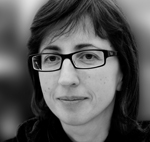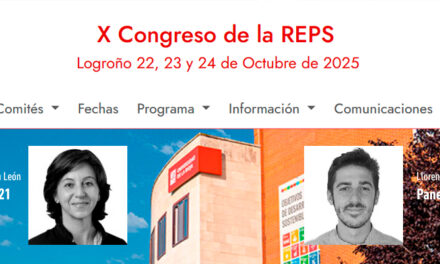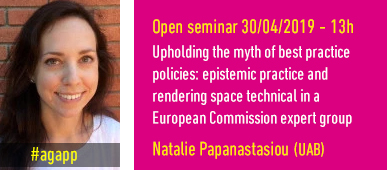Cycle of open seminars
Open access at Campus UAB (edifici MRA)
Bellaterra
Scheduled seminars [ pdf ] updated 05/05/2025
UPCOMING SEMINARS
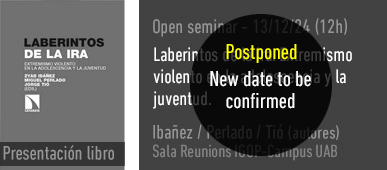
Date: Postponed. New date TBC
Name: Zyab Ibañez, Miguel Perlado, Jorge Tió.
Book presentation “Laberintos de la Ira. Extremismo violento en la adolescencia y la juventud”.
Discussant: Belén de la Cámara (SMAT Justicia Juvenil)
More info: https://www.catarata.org/libro/laberintos-de-la-ira_155335/
Zyab Ibañez is a researcher at the Institute of Government and Public Policy (IGOP) of the Autonomous University of Barcelona. He holds a PhD in Political and Social Sciences from the European University Institute in Florence (2007) and a Master’s degree in Environmental Assessment from the London School of Economics. His research combines cross-national institutional analysis and organizational case studies to explore how different institutional regimes shape the design and implementation of public policies in the areas of employment, working time and migration. As a researcher, he has participated in several EU-funded projects, such as RECWOWE, Mobile Identities, PROMISE and Euroship.
Miguel Perlado, Psychologist, psychotherapist, teacher-supervisor (FEAP-EAP) and psychoanalyst (SEP-IPA). President of the Section of Psychoanalytic Psychotherapy of the Spanish Federation of Psychotherapy Associations (FEAP). He is also a member of the Board of Trustees of the Catalan Congress Foundation on Mental Health (FCCSM), supervisor of the Institute of Forensic Psychology of Barcelona (IPF), founder and current supervisor of the Association for the Investigation of Psychological Abuse (AIIAP) and member of the International Cultic Studies Association (ICSA). He is coordinator of the Working Group on Sectarian Drifts (Official College of Psychology, COPC) and co-coordinator of the Working Group on Violent Ideological Radicalization of the FCCSM and PCG. He is also a member of the Scientific Committee of the European Federation of Information Centres on Sects (FECRIS) and a professor of the Master in Transcultural Spirituality and the Master in Contemporary Psychoanalytic Psychotherapy at the Ramon Llull University. He has written Clinical Studies on Sects (2010) and Captured: Everything you need to know about sects (2020).
Jorge Tió, Clinical psychologist from the University of Barcelona and psychoanalyst of the Spanish Society of Psychoanalysis and the International Psychoanalytical Association. He has worked in the Public Assistance Network in Mental Health since 1985. He is a supervisor of social care and mental health teams, and a teacher in different university master’s degrees at the University of Barcelona. Author of different articles on psychotherapy and adolescence and co-author of the book Adolescencia y transgresión (Octaedro, 2014). Co-coordinator of the Working Group on Violent Ideological Radicalization of the FCCSM and PCG. He is also vice-president of the Catalan Association of Mental Health Professionals-Spanish Association of Neuropsychiatry and was a member of the board of trustees of the Congrés Català de Salut Mental Foundation from 2001 to 2003. He was coordinator of the Minor Care Team of Pere Claver Grup-Servei Català de la Salut from 2005 to 2015, a team that in 2009 was awarded an honourable mention by the Department of Justice of the Generalitat de Catalunya. He is a representative of the Adolescence and Youth Area of the PCG.
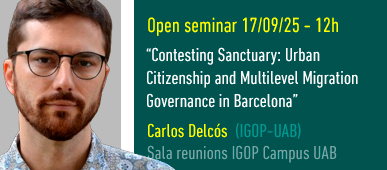
Date: 17/09/2025 a les 12h sala de reunions de l’IGOP, MRA
Name: Carlos Delclós
Institution: (IGOP-UAB)
“Contesting Sanctuary: Urban Citizenship and Multilevel Migration Governance in Barcelona”.
Discussant: –
Abstract: This article examines the emergence and contentious politics of urban sanctuary in Barcelona under a progressive “new municipalist” government. Through document analysis, key informant interviews, participant observation, and media and archival research conducted between 2015 and 2023, it analyses the City of Refuge programme and other local migration policies as sites of multilevel migration governance and political struggle. The article conceptualises sanctuary not as a stable policy field but as a dynamic, contentious process shaped by the interplay between legality, discourse, identity formation, and scalar negotiation. It draws on theoretical insights from scholarship on urban citizenship and multilevel governance, tracing how municipal actors and civil society mobilised symbolic and material resources to include undocumented residents and contest exclusionary national and supranational frameworks. Empirical attention is given to administrative inclusion practices, targeted social programmes, and confrontations over policy competence. The findings reveal both the transformative potential and structural limitations of municipal sanctuary initiatives, highlighting the tensions between symbolic commitments to inclusion and the constrained capacities of local governments within hierarchical systems of governance. Barcelona thus offers a paradigmatic case for understanding how cities reconfigure—and are constrained by—the scalar politics of migration governance.
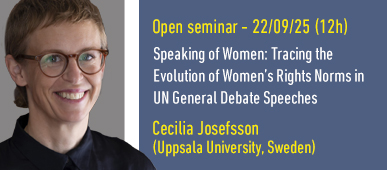
Date: 22/09/2025 a les 12h aula de seminaris DEC
Name: Cecilia Josefsson
Institution: (Uppsala University, Sweden)
“Speaking of Women: Tracing the Evolution of Women’s Rights Norms in UN General Debate Speeches”.
Seminari Conjunt IGOP/DEC
Abstract:
Speaking of Women: Tracing the Evolution of Women’s Rights Norms in UN General Debate Speeches
International norms around women’s rights appear increasingly contested, even as they remain deeply embedded in global governance frameworks. This paper examines how states articulate support for—or resistance to—these norms by analyzing all United Nations General Debate (UNGD) speeches from 1946 to 2023. Drawing on nearly eight decades of annual addresses by UN member states, the study uses quantitative text analysis to track the frequency, timing, and thematic content of gender-related references. It asks: who speaks about women, girls, and gender; when; and in what terms? The findings reveal a notable increase in engagement with women’s rights since the mid-1990s, particularly after the 1995 Beijing Conference, with attention doubling after 2010. While Western liberal democracies, especially the Nordic countries, have historically acted as norm entrepreneurs, recent patterns suggest shifting centers of engagement. The study argues that global gender politics cannot be fully understood through a simple progress-versus-backlash lens. Instead, it reveals a more complex normative landscape shaped by simultaneous advancement, resistance, and strategic appropriation. By offering a longitudinal and comparative account of gender discourse in one of the UN’s most visible forums, the article contributes to broader debates on norm diffusion, international legitimacy, and the future of global gender equality.
SEMINARS HELD
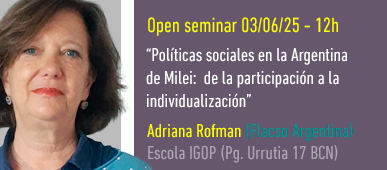
Date: 3/06/2025 a les 12h Escola de l’IGOP (Pg Urrutia, 17 Barcelona)
Name: Adriana Rofman
Institution: (FLACSO Argentina)
“Políticas sociales en la Argentina de Milei: de la participación a la individualización”.
Discussant: Òscar Rebollo (UAB)
Abstract: Within the framework of a radical reduction in the role of the State, the current Argentine government has undertaken a neoliberal reformulation of social policies to address social vulnerability. This reform consists of limiting the participatory management programs constructed throughout this century, in order to strengthen the policy of individual monetary allocations. The budgetary, programmatic, and regulatory reconfiguration is accompanied by a narrative campaign to delegitimize territorial community organization, in a combination that dismantles a tradition of public-social actions aimed at social integration in vulnerable territories. Based on a detailed analysis of these changes, we question their possible effects on social cohesion and on society’s relationship with public-state institutions.
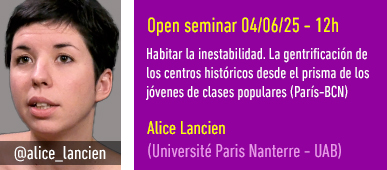
Date: 4/06/2025 a les 12h sala de reunions de l’IGOP, MRA
Name: Alice Lancien
Institution: (Université Paris Nanterre)
“Habitar la inestabilidad. La gentrificación de los centros históricos desde el prisma de los jóvenes de clases populares (París-Barcelona)”.
Discussant: Carlos Delclós (UAB)
Abstract: This presentation is based on the results of the doctoral thesis conducted by Alice Lancien, jointly supervised by the Autonomous University of Barcelona and the University of Paris Nanterre. The thesis focuses on the urban socialization of working-class youth in the Old Town neighborhoods of Paris and Barcelona. It is based on an ethnographic survey conducted between February 2018 and January 2020 in the neighborhoods of La Chapelle (Paris) and Raval (Barcelona).
By questioning the socialization of working-class youth groups, generally assumed to be solely peer-to-peer and neighborhood-based, the thesis investigates the reception of gentrification and social mixing by the working classes in historic centers. It aligns with work that addresses gentrification as a complex process, far from a univocal and linear process of displacement and substitution, and examines the strategies developed by individuals to cope with it. This thesis sheds light on a popular youth urbanity that is constantly being negotiated, transforming as the city itself does.
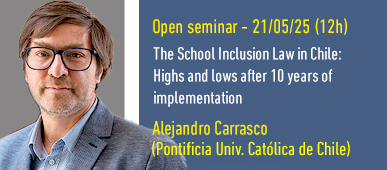
Date: 21/05/2025 a les 12h sala de reunions de l’IGOP, MRA
Name: Alejandro Carrasco
Institution: (Pontificia Universidad Católica de Chile)
“The School Inclusion Law in Chile: Highs and lows after 10 years of implementation”.
Discussant: Adrián Zancajo (UAB).
Alejandro Carrasco Professor at the Faculty of Education, (Pontificia Universidad Católica de Chile), currently Dean, and researcher at CEPPE UC and the Center for Educational Justice. UC sociologist and PhD at the University of Cambridge, UK.
Abstract: Chile has been paradigmatic in organizing a market-like education system over four decades. The Inclusion Law was implemented 10 years ago aiming to reorganize such principles inspiring the educational provision as well as to tackle the effects of decades of those market-driven policy initiatives. The seminar offers a comprehensive review of the central components of the Inclusion Law, the rationale of its incorporation, conceptual tools for its understanding, and findings of the early assessment of its implementation. The seminar offers a view of the cultural, political, and policy difficulties to transform educational systems deeply informed and structured by neoliberal principles.

Date: 14/05/2025 a les 12h sala de reunions de l’IGOP, MRA
Name: Rasmus Broms
Institution: (University of Gothenburg)
“Privatization of welfare and quality outcomes: The case of residential elder care in Sweden”.
Discussant: Joaquín Rozas (UPF). The seminar is part of the CARE-Spain project.
Rasmus Broms is Associate Professor in political science in the Department of Political Science at the University of Gothenburg. His research primarily focuses on institutions and local accountability.
Abstract: Privatization of welfare services is frequently debated, but its impact on quality is less often studied empirically. Drawing on a series of studies of long-term care facilities for older people in Sweden, we explore whether—and how—private provision affects quality outcomes. We find no overall difference between public and private care. However, the type of private provider matters: non-profit organizations deliver higher-quality care compared to publicly listed corporations and private equity–owned firms.
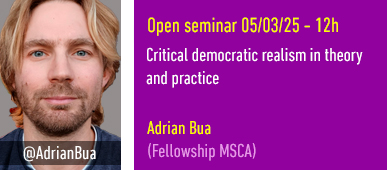
Date: 05/03/2025 a les 12h sala de reunions de l’IGOP, MRA
Name: Adrian Bua
Institution: (UAB)
“Critical democratic realism in theory and practice”.
Discussant: Yanina Welp (Albert Hirshman Centre on Democracy)
Adrian holds a PhD in Political Science from the University of East Anglia (UK). His focus is on the intersection of democratic theory, critical political economy and public policy. Currently, he is interested in the politics of participatory governance and the role of participation in (de)democratisation and broader social change within capitalism.
Adrian joined IGOP in 2023 as a Marie-Curie Fellow, to research the politics of urban stability and regime change during the wave of Spanish New Municipalism, 2015-2019. During his stay at IGOP he will also work on the INSPIRE Horizon Project (Intersectional Spaces of Participation: Inclusive, Resilient, Integrated) as a co-investigator working on the political economy of participatory democracy.
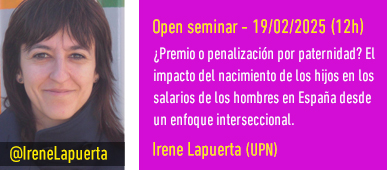
Date: 19/02/2025 a les 12h sala de reunions de l’IGOP, MRA
Name: Irene Lapuerta
Institution: (Universidad Pública de Navarra)
“¿Premio o penalización por paternidad? El impacto del nacimiento de los hijos en los salarios de los hombres en España desde un enfoque interseccional”.
Discussant: Danislava Marinova (IGOP-UAB)
Irene Lapuerta holds a degree in Political Science and Administration from the University of Santiago de Compostela, a Master’s Degree in Public and Social Policies and a PhD in Political and Social Sciences from the Pompeu Fabra University. Her main lines of research focus on the study of family policies, the labour market and gender inequalities.
She currently works as a professor in the area of Social Work and Social Services in the Department of Sociology and Social Work at the Public University of Navarra.
Abstract
This study analyses the impact of fatherhood on earnings in Spain using data from 2005 to 2021. Although there is much research on how fatherhood affects earnings, the influence of fatherhood, especially in Spain, is less explored. In some countries, fathers experience a “fatherhood premium”, attributed to gender role specialisation, employer preferences for male workers and self-selection into fatherhood. This study aims to assess the impact of fatherhood on men’s earnings, focusing on wage distribution, family structure and the use of long-term parental leave (childcare leave and reductions in working hours for legal guardianship). Three key hypotheses are tested. First, the fatherhood premium is expected to be more pronounced among fathers with higher wages. Second, it is expected to be higher in heterosexual couples due to gender specialisation. Third, we expect that the use of parental leave penalizes men’s wages due to the stigma of low work commitment of those who use it. The study uses panel data from the Continuous Working Lives Sample (waves 2005-2022). Unconditional quantile regression on longitudinal data is used to estimate earnings differences between men with and without children. Fixed-effects regression techniques are used to account for self-selection into fatherhood.

Date: 11/02/2025 a les 12h sala de reunions de l’IGOP, MRA
Name: Paolo Funari
Institution: (Doctorand en estada)
”The Politics of Labour Market Policy in the Age of Automation: A Theoretical Framework”.
Discussant: Oscar Molina (QUIT)
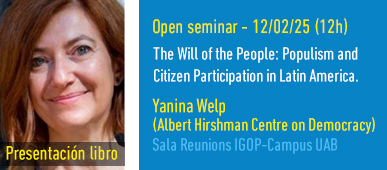
Date: 12/02/2025 a les 12h sala de reunions de l’IGOP, MRA
Name: Yanina Welp
Institution: (Albert Hirshman Centre on Democracy)
Book presentation: ”The Will of the People: Populism and Citizen Participation in Latin America”.
Discussant: Adrian Bua (IGOP-UAB)
Yanina Welp holds a PhD in Political and Social Sciences from the Pompeu Fabra University (Barcelona, Spain) and a degree in Political Science and Social Communication Sciences, both from the University of Buenos Aires (Argentina).
Since 2019, she has been a researcher at the Albert Hirshman Centre for Democracy in Geneva. Between 2016 and 2019, she was co-director of the Latin American Zurich Center at the University of Zurich. She is also co-founder of the Red de Politólogos (Red de Political Women) and a member of the boards of the Observatorio de Reformas Políticas (Observatory of Political Reforms), the Real Instituto Elcano (Elcano Royal Institute) and the CIEPS.
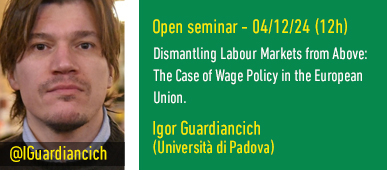
Date: 04/12/2024 a les 12h sala de reunions de l’IGOP, MRA
Name: Igor Guardiancich
Institution: (Università di Padova)
Title: Dismantling Labour Markets from Above: The Case of Wage Policy the European Union.
Discussant: Oscar Molina (QUIT)
Igor Guardiancich is an Assistant Professor at the Department of Political Science, Law, and International Studies (SPGI) of the University of Padua.
Guardiancich’s research is focused on political economy, public and social policy, European integration, transition in Central and Eastern Europe, social dialogue and industrial relations. His work includes the monograph Pension Reforms in Central, Eastern and Southeastern Europe: From Post-Socialist Transition to the Global Financial Crisis published by Routledge in 2013, and the volume co-edited together with Oscar Molina in 2017 for the ILO, entitled Talking through the Crisis: Social Dialogue and Industrial Relations Trends in Selected EU Countries. In addition to these books, he has published in highly ranked international peer-reviewed journals, such as European Union Politics, Governance, Journal of Common Market Studies, Regulation & Governance, Socio-Economic Review, West European Politics and several others.
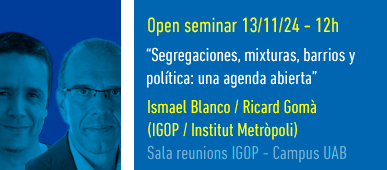
Date: 13/11/2024 a les 12h sala de reunions de l’IGOP, MRA.
Name: Ismael Blanco / Ricard Gomà
Institution: (IGOP / Institut Metròpoli)
“Segregaciones, mixturas, barrios y polítíca: una agenda abierta”.
Ismael Blanco holds a PhD in Political Science from the Autonomous University of Barcelona. He is Director of the IGOP and Professor of the Department of Political Science and Public Law at the UAB, with Advanced Research accreditation (Professor) from the AQU. As a researcher, Ramon y Cajal has been linked to the Department of Political and Social Sciences at Pompeu Fabra University. He has been a Beatriu de Pinós researcher in the Department of Public Policies at De Montfort University (UK), and a visiting researcher at the Federal University of Minas Gerais and the Joao Pinheiro Foundation (Brazil). He has been coordinator of the SGR Urban Governance, Commons, Internet and Social Innovation (URGOCIS), and is a member of the SGR i-GOP. His recent research focuses on the dynamics of inequality and socio-spatial segregation in metropolitan contexts, on the value of urban social infrastructure as a factor of social and territorial cohesion, and on local community and institutional responses to the challenges of inequality.
Ricard Gomà is a professor of Political Science at the Autonomous University of Barcelona (UAB). Director of the Institut Metrópoli since 2016. Researcher at the Institut de Govern i Polítiques Públiques (IGOP-UAB). He holds a PhD in Political Science and Administration (Autonomous University of Barcelona, 1992). He also has a master’s degree in Public Policy (University of Strathclyde, Scotland, 1989) and a master’s degree in Urban, Regional and Metropolitan Studies (Autonomous University of Barcelona, 1990). Professor of Political Science (UAB) since 1993, and has been a visiting professor at the universities of Warwick, UK (1995) and Bath, UK (1998 and 2002). He has taught in doctoral and postgraduate programs at European universities (United Kingdom, Italy) and Latin American universities (Argentina, Brazil, Mexico, among others).
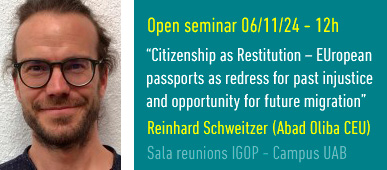
Date: 06/11/2024 a les 12h sala de reunions de l’IGOP, MRA
Name: Reinhard Schweitzer
Institution: (Universitat Abad Oliba CEU)
Joint Seminar with SGR Transdem
“Citizenship as Restitution – EUropean passports as redress for past injustice and opportunity for future migration”.
Discussant: Eva Ostergaard-Nielsen (UAB)
Research Professor at Universitat Abat Oliba CEU in Barcelona, also associated with the Barcelona Center for International Affairs (CIDOB) and the Sussex Center for Migration Research (SCMR) in Brighton, UK. Associate Editor of the Journal of Ethnic and Migration Studies. PhD in Migration Studies (2018, University of Sussex) and degrees in Political Science and Sociology (University of Innsbruck). Previously Marie Skłodowska-Curie Individual Research Fellow at the Department of Political Science of the University of Vienna (REvolTURN project). His research focuses on the politics, practices, and challenges of governing international migration across different political and administrative levels, geographical contexts, and institutional settings. From an interdisciplinary and comparative perspective, he studies legal frameworks, everyday practices of policy implementation, and ways in which migrants perceive, use, bend, or resist the rules and restrictions imposed on their mobility and “integration”.
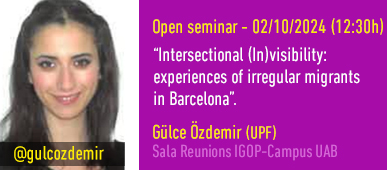
Date: 02/10/2024 a les 12:30h sala de reunions de l’IGOP, MRA
Name: Gülce Özdemir
Institution: (UPF)
“Intersectional (In)visibility: experiences of irregular migrants in Barcelona”.
Available at: https://www.tandfonline.com/doi/full/10.1080/1369183X.2023.2298351
Discussant: Daniel Edmiston (IGOP-UAB)
Özdemir holds a PhD from the Department of Political and Social Sciences at Pompeu Fabra University (UPF). She studies the complex relationships between political structures, social phenomena, and marginalized communities. She has a diverse range of publications, including policy papers and peer-reviewed articles in top-tier journals such as Cities and the Journal of Ethnic and Migration Studies. Her particular focus is on the intersection of irregular migration and urban settings, and how local and national policy dynamics shape the experiences of migrants in cities. Through her work, she aims to identify strategies for creating more inclusive and fair urban environments for all residents, regardless of their migration status. I hold positions as pre- and post-doctoral researchers at prestigious universities and institutions including UAB Institut Barcelona d’Estudis Internacionals, and United Nations University – World Institute for Development Economics Research.
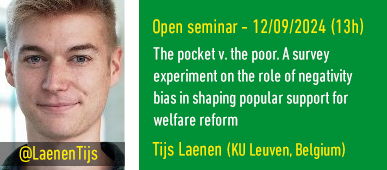
Date: 12/09/2024 a les 13h sala de juntes Facultat CCPP, UAB
Name: Tijs Laenen
Institution: (KU Leuven, Belgium)
Joint seminar with SGR DEC
“The pocket v. the poor. A survey experiment on the role of negativity bias in shaping popular support for welfare reform”
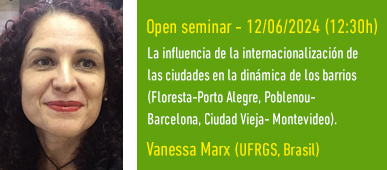
12/06/2024 a les 12:30h sala de reunions de l’IGOP, MRA
Vanessa Marx
Programa de Posgrado en Sociologia (UFRGS)
“La influencia de la internacionalización de las ciudades en la dinámica de los barrios (Floresta-Porto Alegre, Poblenou- Barcelona, Ciudad Vieja- Montevideo)”
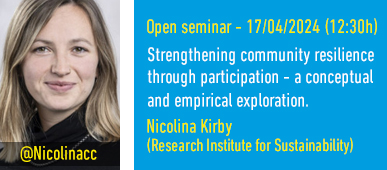
17/04/2024 a les 12:30h sala de reunions de l’IGOP, MRA
Nicolina Kirby
(Research Institute for Sustainability, Postdam)
“Strengthening community resilience through participation – a conceptual and empirical exploration”

20/03/2024 a les 12:30h sala de reunions de l’IGOP, MRA
Pernelle Smits ( + info )
(FSA ULaval)
“Governance of interorganizational collaborations : key functions, top challenges, practical knowledge”
(seminar in English)
15/03/2024 a les 13h seminari A Facultat CCPP i Sociologia, UAB
Manuel Ángel Río Ruiz
(Universidad de Sevilla)
“Escuelas infantiles públicas y familias en el campo de la educabilidad 0-3 años en Barcelona: cambios, tensiones, interdependencias y diferencias”
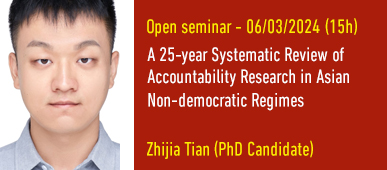
06/03/2024 a les 15h seminari A Facultat CCPP i Sociologia, UAB
Zhija Tian ( + info )
(investigador pre-doctoral IGOP-UAB)
Seminari del programa de doctorat PPIR
“A 25-year Systematic Review of Accountability Research in Asian Non-democratic Regime”.
Discussant: Núria Font

14/02/2024 a les 12:30h sala de reunions de l’IGOP, MRA
Pieter Vanhuysse
(PhD, LSE)
“Do low-fertility European societies tax their own reproduction?”
(seminar in English)

01/02/2024 a les 13h sala de reunions de l’IGOP, MRA
Pia Schrober
(University of Tübingen)
“Parental leave and day-care policy, take-up consequences and changing normative beliefs: Evidence from two survey experiments”
(seminar in English)

23/01/2024 a les 12h sala de reunions de l’IGOP, MRA
Manuel Alvariño ( + info ) i Llorenç Soler (+ info)
(investigador pre-doctoral al European University Institute / Doctorand IGOP-UAB)
“Politics of Welfare State”
“Framing the political debate: how party politics (des)politicizes and explains dissimilar minimum income reforms in Southern Europe.”
Llorenç Soler
Discussant: Leire Rincón
“The Mediterranean pioneer: explaining Spain gender-targeted leaves through feminist strategies in favourable political and institutional conditions”
Manuel Alvariño
Discussant: Dani Marinova, IGOP-UAB
(seminar in English)
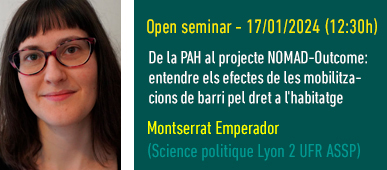
17/01/24 a les 12:30h – sala de reunions de l’IGOP, MRA
Montserrat Emperador ( + info )
(Maîtresse de conférences en Science politique Lyon 2 UFR ASSP)
“De la PAH al projecte NOMAD-Outcome: entendre els efectes de les mobilitzacions de barri pel dret a l’habitatge”.
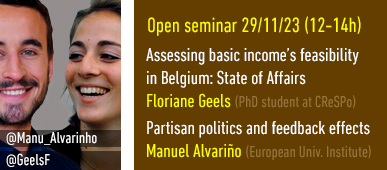
29/11/2023 a les 12h sala de reunions de l’IGOP, MRA
Floriane Geels
(Phd Student at CReSPo, UCLouvain Saint-Louis Bruxelles)
“Assessing basic income’s feasibility in Belgium: State of affairs.”
Discussant: Llorenç Soler
29/11/2023 a les 13h sala de reunions de l’IGOP, MRA
Manuel Alvariño ( + info )
(investigador pre-doctoral al European University Institute)
“Partisan politics and feedback effects: comparing defamilialization by center-right parties across six familistic countries”
(seminari en anglès)
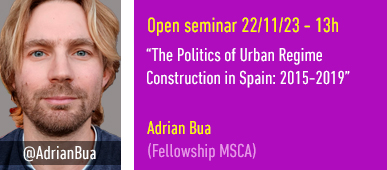
22/11/2023 a les 13h sala de reunions de l’IGOP, MRA
Adrian Bua
(fellowship MSCA)
“The Politics of Urban Regime Construction in Spain: 2015-2019”
(seminari en anglès)
31/10/2023 a les 12:30h sala de reunions de l’IGOP, MRA
Marianne Maeckelbergh ( + info )
(Ghent University and Leiden University)
Marta Ill Raga
(Politòloga UPF i investigadora predoctoral a Ghent University)
“Property and Democratic Citizenship”
(workshop en anglès)
Abstract: Project funded by the European Research Council which uses conflicts over property to explore how various property regimes impact people’s experiences of citizenship across five democratic countries (Greece, the Netherlands, Spain, the UK, and the US).
Discussant: Carlos Delclós, IGOP-UAB, Serra Hunter teacher at departament de Sociologia de la UAB.

27/10/2023 a les 09:45h sala de reunions de l’IGOP, MRA
Workshop projecte ECIU “RN4EUHEALTH”
“Solidarity in Health at the European level. Towards a research network on the European Health Union”
(workshop en anglès)

28/09/2023 a les 12:00h sala de reunions de l’IGOP, MRA
Ralph Horne
(Associate Deputy Vice-Chancellor, Research and Innovation RMIT University)
“Recycling in urban apartments: how can the waste burden can be more justly distributed?”
(seminari en anglès)
Abstract: Apartments are of particular interest in zero waste debates. They are associated with lower recycling rates than other housing typologies. Plastic bag levy policies have been found to have a significant effect among owner-occupiers of high-rise apartments with higher socio-economic status, but a minimal effect among lower socio-economic households and renters. This points to the unequal effects of waste reduction measures across housing types, class, and tenure types.
Paying heed to rhythms of urban waste can provide insights into how the waste burden can be more justly distributed. In Australia, as in other owner-occupier, suburban based societies, housing is an essential locus for the domestic waste regime, and apartments are anomalies that disrupt it. Rather than assuming that the aforementioned lower recycling rates are a product of household behaviour, we present empirical research that reveals dynamics at play that make apartments incompatible with normalised waste regimes. Spatio-temporal knowledge of waste and apartment living is embodied and experienced, doing places and doing times form the rhythms of waste. Understanding and addressing these is thus a key to addressing uneven urban waste practices.

19/04/23 a les 12:30h sala de reunions de l’IGOP, MRA
Lara Maestripieri,
(IGOP-UAB)
“The VulnYouth project: how labour precariousness influence mental health?”.
Discussant: Andrea Bellini (Università La Sapienza di Roma)
(seminari en anglès)

03/05/23 a les 12:30h sala de reunions de l’IGOP, MRA
Stephan Köppe,
(University College Dublin, School of Social Policy, Social Work and Social Justice)
“Paternity Leave – Latte Papa or NASCAR Dads?”.
(seminari en anglès)
Abstract. Although paternity leave has been mandatory in the EU with the work-life balance directive since summer 2022, little is known about new fathers taking the short leave. While the majority of research has focussed on the usually longer shared parental leave and gender inequality in uptake, paternity leave received less attention. The talk explores if fathers taking leave are following the idealised Swedish Latte Papa model with style and a progressive drive for gender equality? Are also the traditional NASCAR dads from a white working-class background adopting new caring roles? To answer these questions, the talk is twofold:
First, a structured literature review of 118 studies published between 1980 and 2022 maps the state-of-the-art research on paternity benefit. While highlighting key findings on policy, take-up and outcomes, it also stresses biases and knowledge gaps.
Second, new findings are presented concerning Irish fathers taking paternity leave. As one of the last countries in the EU Ireland adopted a two week leave in 2016. A comprehensive overview of the uptake is provided through measuring four take-up rates (crude, adjusted, eligibility, gender). Occupational and age-related inequalities in uptake are revealed and discussed in the context of the eligibility criteria and flat-rate benefit. These aggregate figures are then supplemented with Labour Force Survey micro data to reveal further socio-demographic and occupational drivers of uptake. Two worlds of fatherhood are identified: Latte Papas are better educated, receive higher incomes and have better access to occupational benefits, while their working-class counterparts cannot afford to take leave and miss the opportunity to take on new father roles.

17/05/23 a les 12:30h sala de reunions de l’IGOP, MRA
Peter Starke,
(Southern Denmark University)
“La relación entre cambio climático, estado de bienestar y política social”.
(seminari en anglès)
Abstract: Rising insecurity is a sentiment shared by many, with certain groups displaying more vulnerability to shocks than others. This paper investigates how subjective insecurity is distributed and whether welfare states can mitigate this discrepancy. The research employs multilevel models using cross-national data from approximately 19,000 individuals across 20 advanced OECD democracies. Our findings suggest that despite the welfare state’s capacity to reduce overall insecurity, it falls short in significantly narrowing the security gap between income groups. This conclusion is further reinforced by national survey data from Denmark, which indicates both an increase in insecurity and a widening security gap.
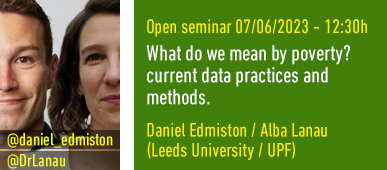
07/06/23 a les 12:30h sala de reunions de l’IGOP, MRA
Alba Lanau and Daniel Edmiston,
(Universitat Pompeu Fabra / Leeds University)
“What do we mean by poverty? current data practices and methods. A discussion from research the UK and Barcelona ”.
(seminari en anglès).
Daniel Edmiston is associate professor of sociology and social policy at the University of Leeds. He will join the Universitat Autònoma de Barcelona in November to start a new ERC project on poverty measurement in Europe.
Alba Lanau, Professor and Ramon y Cajal Researcher at Pompeu Fabra University. PhD in social policy and specialist in multidimensional poverty and child welfare. She is associate editor of the Journal of Poverty and Social Justice.

19/06/23 a les 12:30h sala de reunions de l’IGOP, MRA
Gabriele D’Adda,
(University of Catania)
“Las responses of Social movements and local institutions to the emotional consequences housing insecurity .. Perspectives from Bologna and Barcelona”.
PhD in Political Science from the Università degli studi di Catania and visiting researcher at the Institute of Government and Public Policy (IGOP) of the Universitat Autònoma de Barcelona (UAB). He is currently researching how social movements in Barcelona and Bologna responded to the consequences of the COVID19 pandemic in housing by (re)creating and adapting their strategies and repertoires of actions.

28/06/23 a les 12:30h sala de reunions de l’IGOP, MRA
Paula Amaya,
(Universidad Nacional Arturo Jauretche – Argentina)
“Capacidades institucionales, gobiernos locales y transformación social”.
PhD in Public Policy and Social Transformation, Autonomous University of Barcelona. Master in Government and Development (UNSAM). Degree in Education Sciences, UNLP. Director of the Government, Public Policy and Social Transformation Programme, Arturo Jauretche National University. Lecturer and researcher at the Arturo Jauretche National University. Lecturer in the Diploma in Management and Control of Public Policies at Flacso Argentina.
